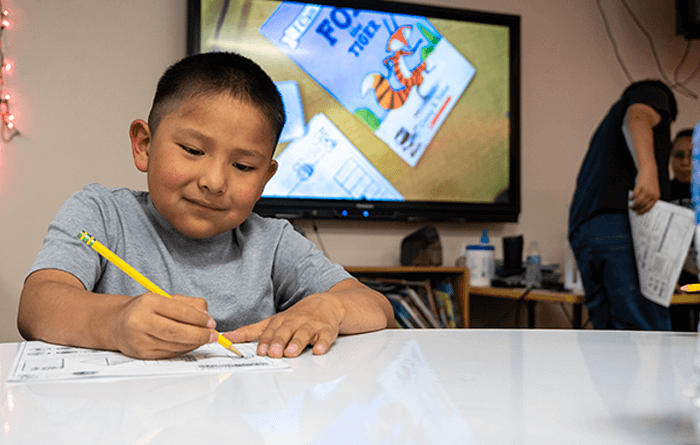National Parenting Gifted Children Week
Announcements

The Bureau of Indian Education offers support to schools, focusing on the unique needs of their students, including programs for the gifted. Brooke Ratliff and Amanda Bryant are school improvement specialists who help schools funded by the BIE design and implement programs for gifted students, among other things.
“Our kids are very hands-on,” Bryant said. “Our schools excel at ensuring that they have those activities.”
BIE students are creative and analytical, and BIE schools encourage student participation in everything from national engineering competitions to collegiate-level beading courses. Bryant and Ratliff see students excelling in the arts, science, technology, engineering and math.
“Especially in the arts. The sheer talent of art and traditional art at our schools is amazing whenever we go to any school,” Ratliff said.
This National Parenting Gifted Children Week, we’re providing some tips on parenting exceptionally gifted academics or artists:
- Be their cheerleader and help them achieve balance.
- Gently push them to be their best selves and foster their growth. Many gifted students struggle with their mental health and put unnecessary pressure on themselves to achieve “perfection.” Do not add to that stress.
- Advocate for your student and teach them self-advocacy.
- Talk to your child’s school administrator(s) to ensure their needs are met. They should be provided with challenging opportunities that match their interests and strengths.
- Encourage their leadership and participation in cultural roles.
- BIE students become leaders by participating in various school activities such as their school’s drum group, serving as lead dancers at powwows, and teaching cultural traditions to their younger classmates as school ambassadors.
- Talk to your gifted student about their favorite subjects and academic interests, whether mathematics, engineering, music, painting or anything else.
- Find ways to cultivate those interests and hone their abilities. This could include reading books, learning history about it or visiting locations that could expand your students’ knowledge of the subject.
- Use the BIE Behavioral Health and Wellness Program and prioritize social and emotional needs as part of your students' academic experience.
- The 24/7 BIE BHWP Call Line (1-844-275-2497) offers immediate, individual crisis support. It is confidential, free and available to students and staff of all entities funded by BIE. There are also options for virtual counseling.
To learn more about higher education scholarships, internships and college preparation checklists to help transition to post-secondary education, visit the BIE’s Scholarships & Internships page.


